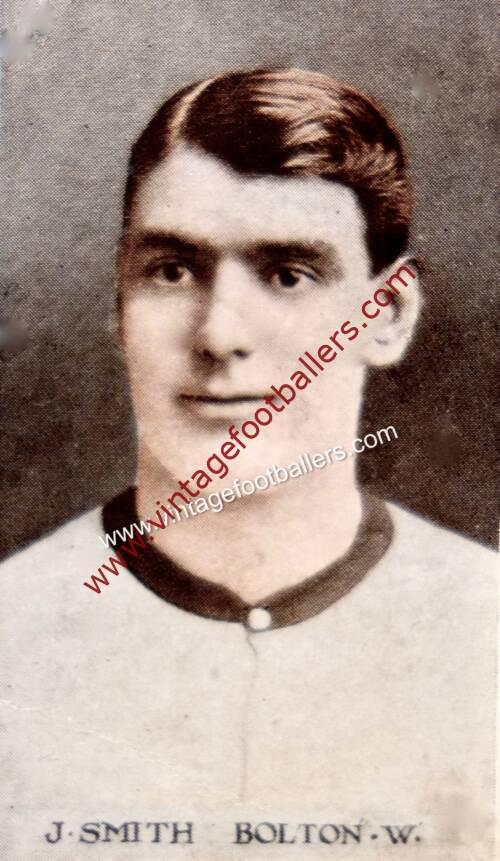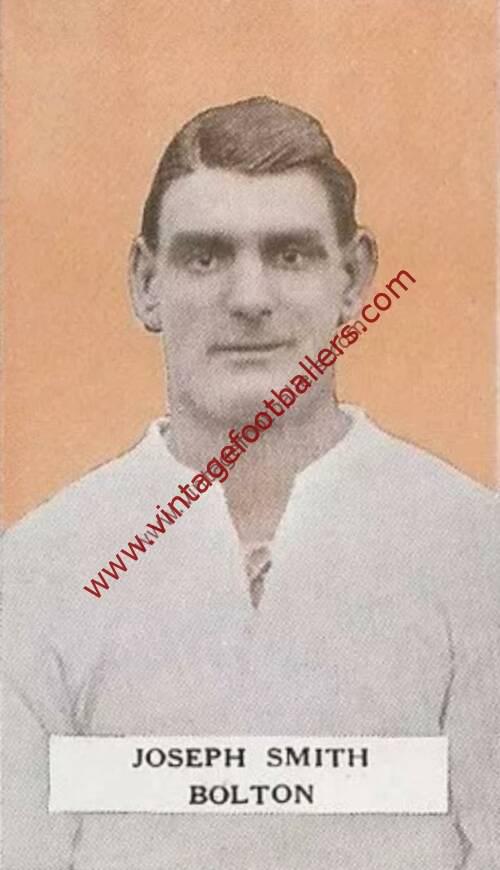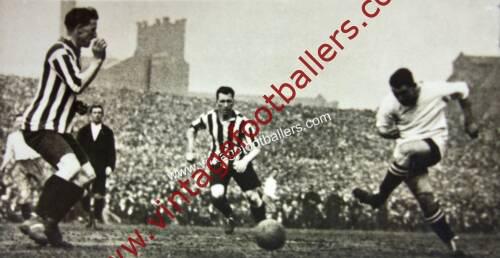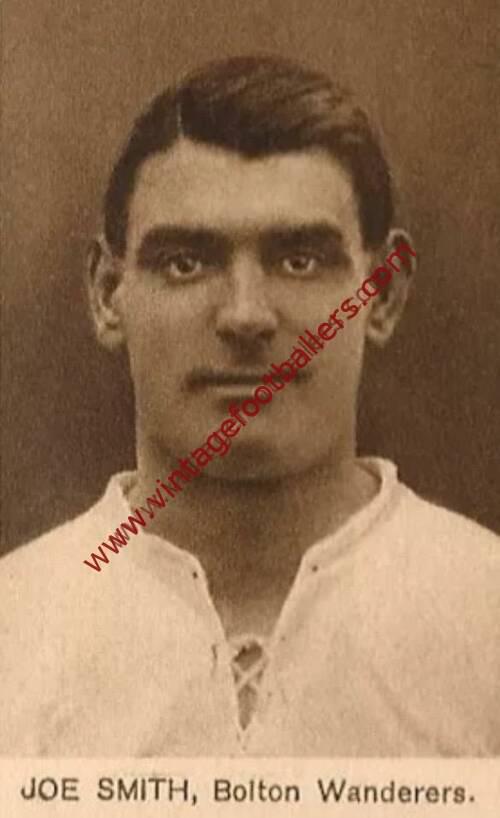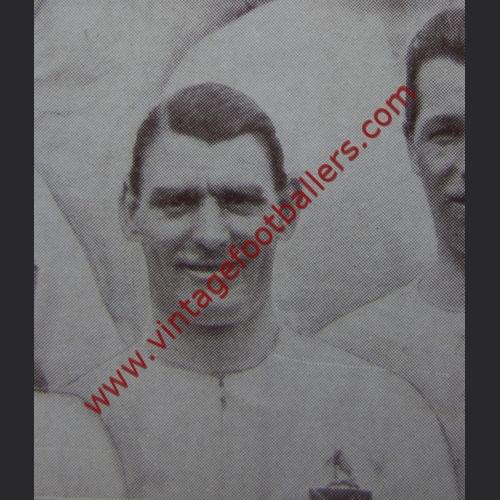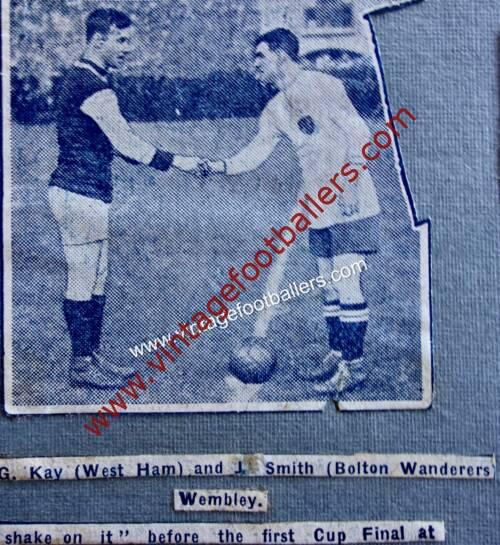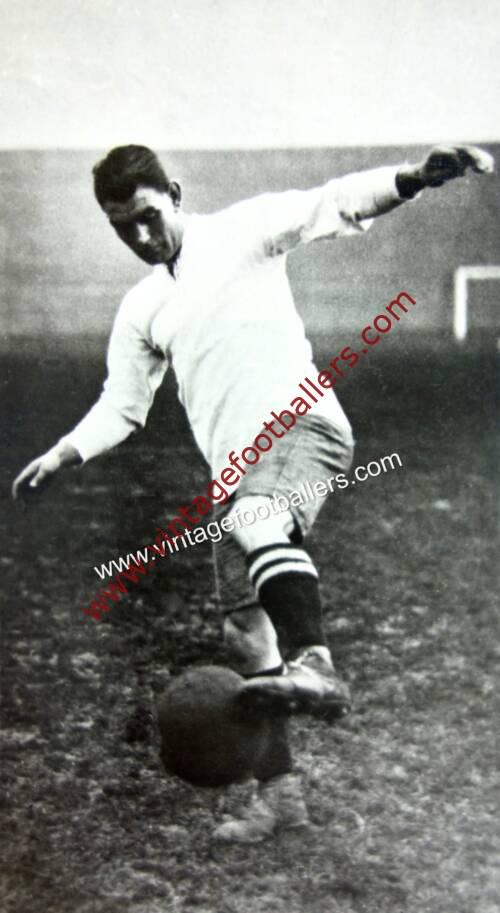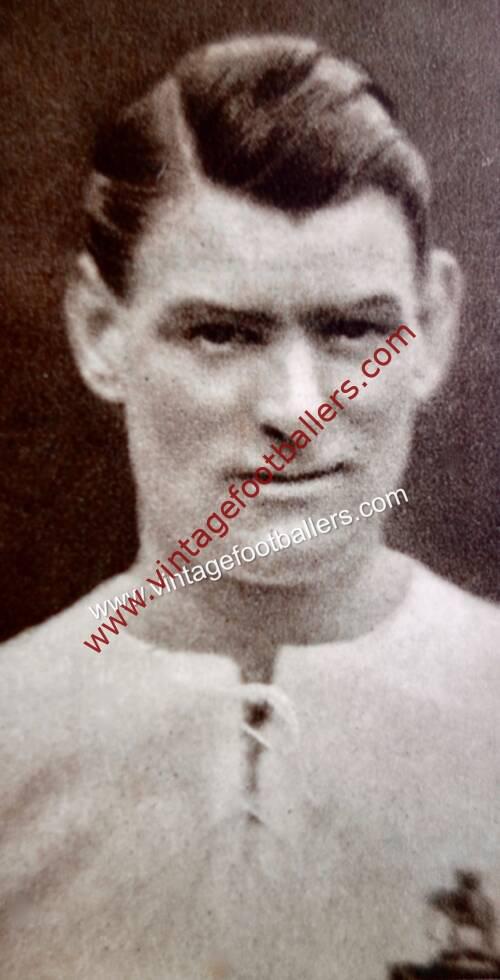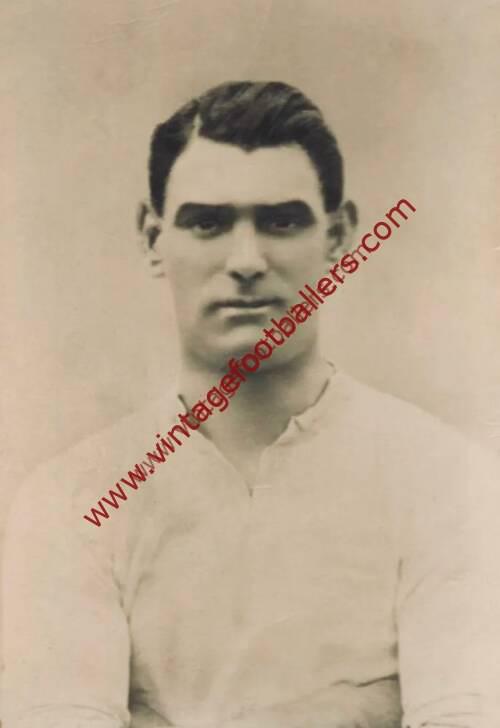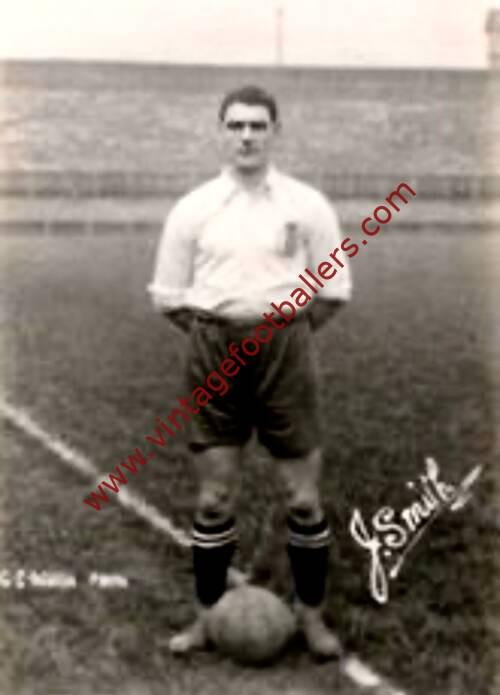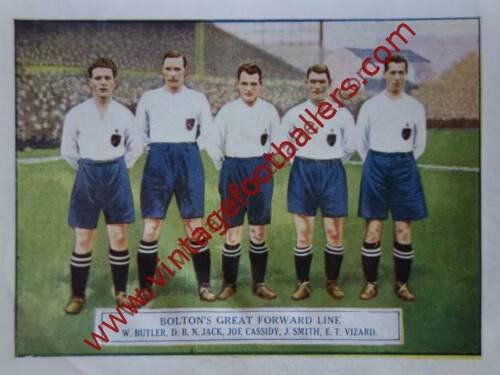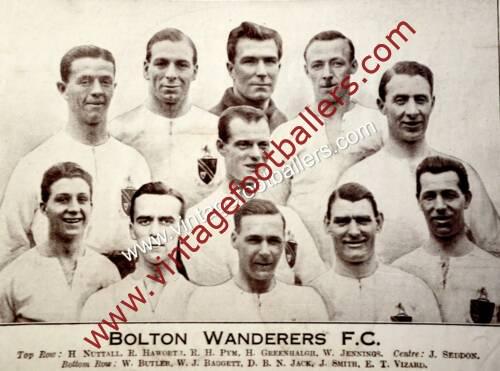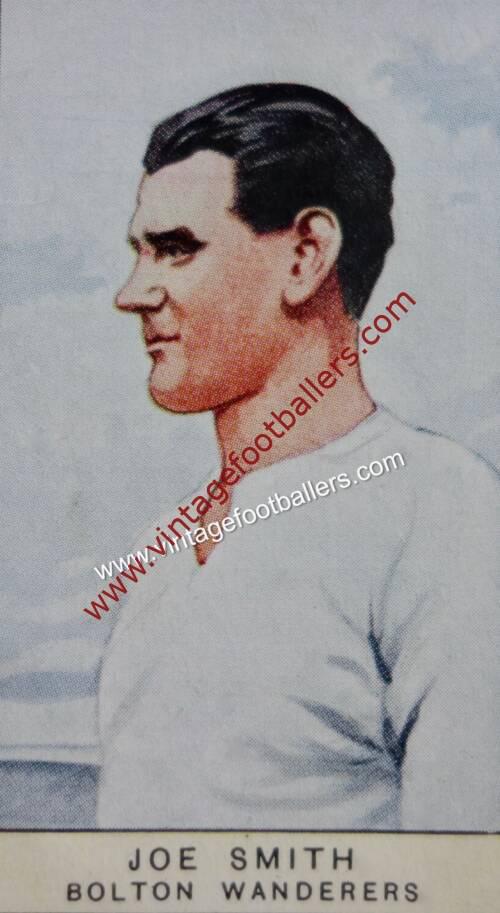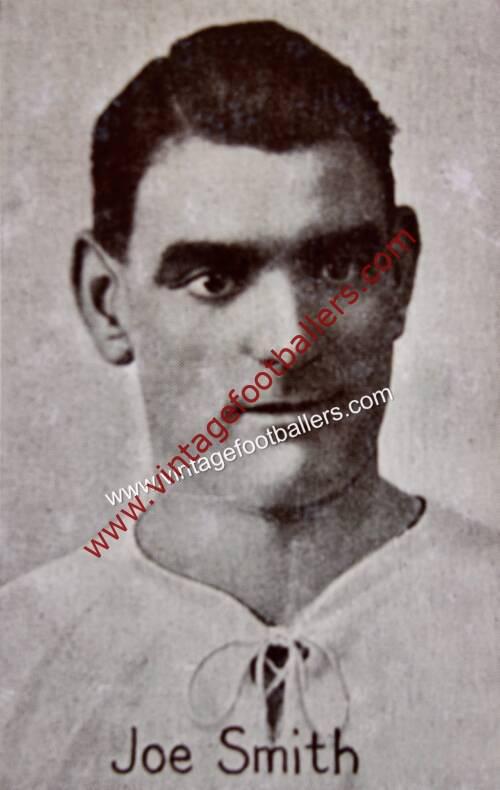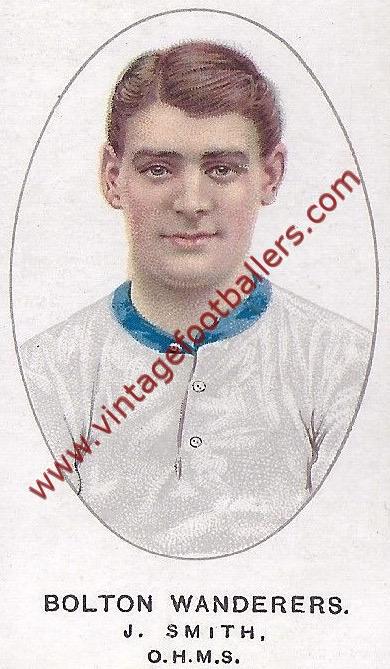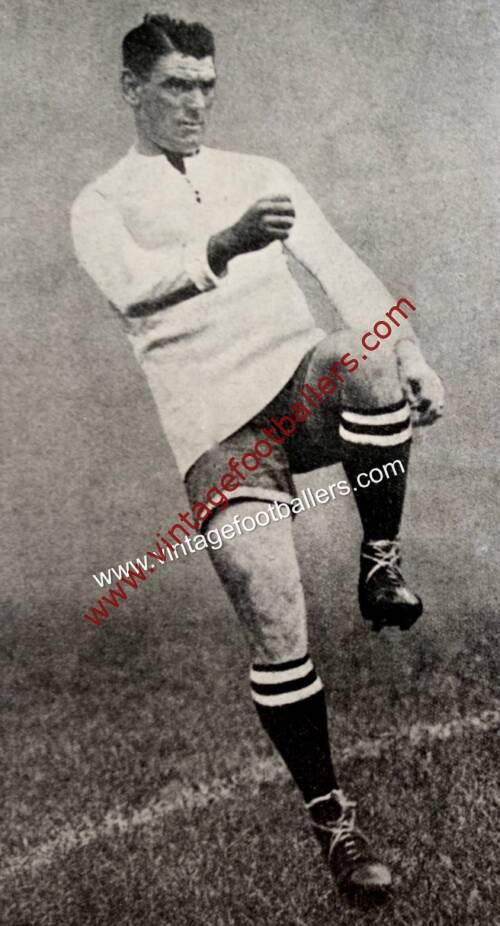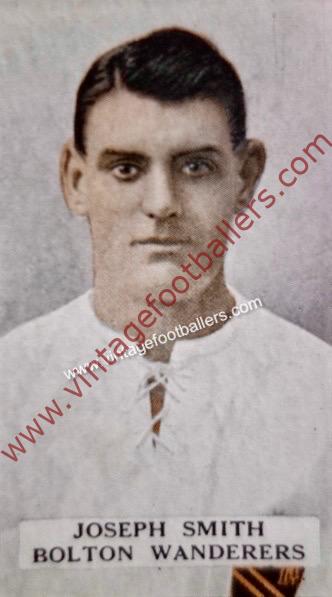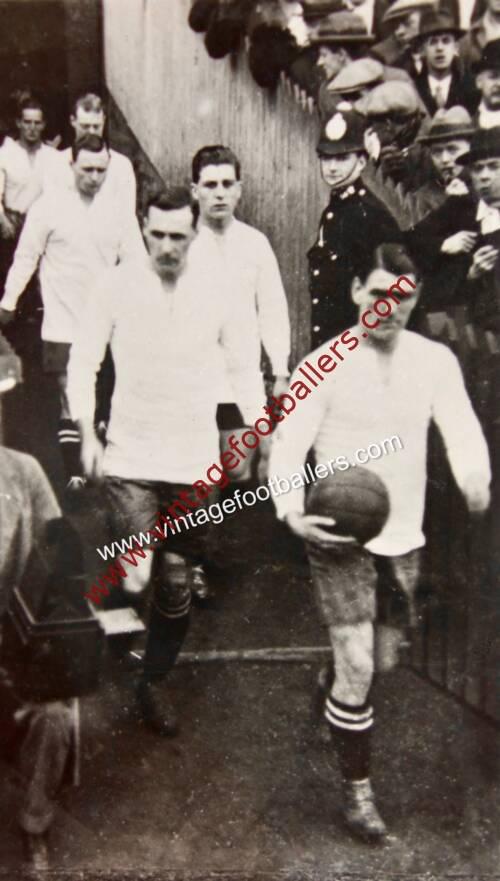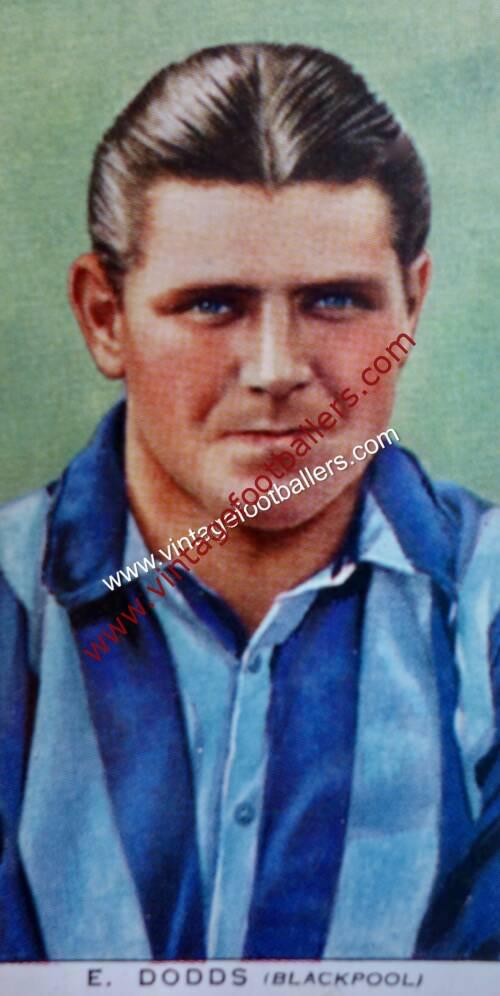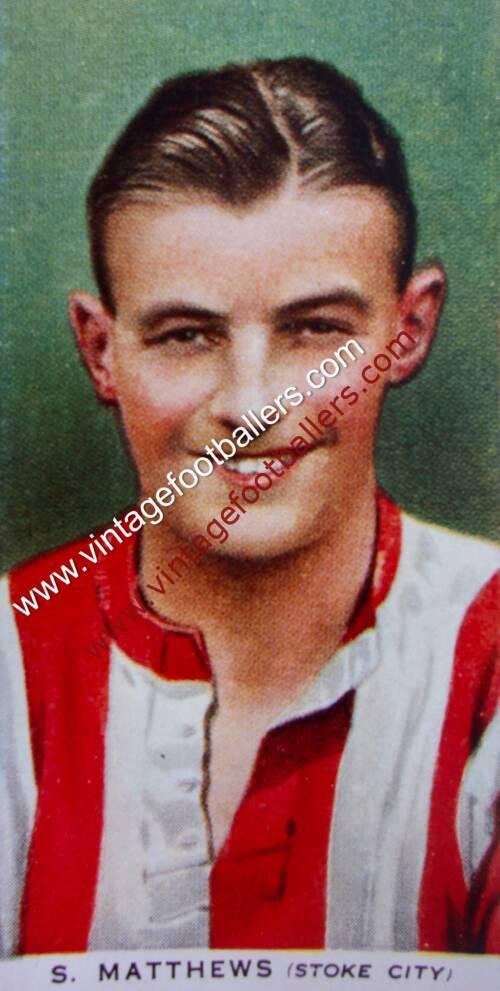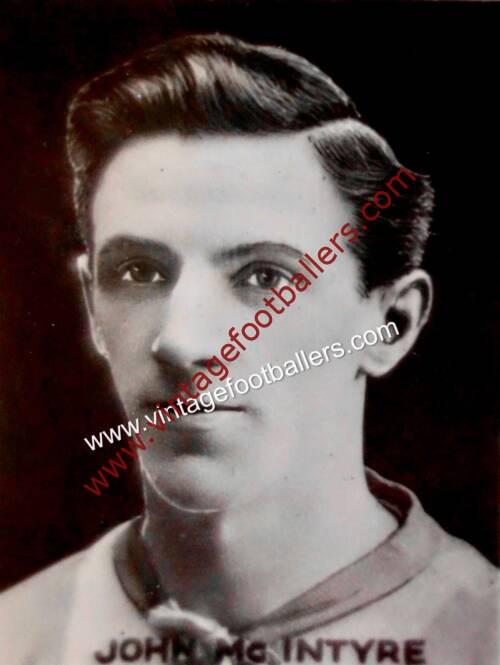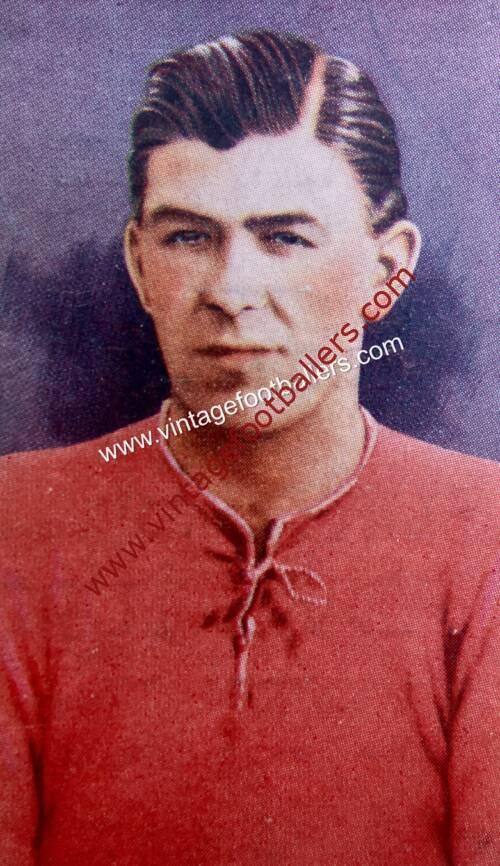Please choose your photo size from the drop down menu below.
If you wish your photo to be framed please select Yes.
Note: 16″x 20″not available in a frame.
Images can also be added to accessories. To order please follow these links
£8.95 – £49.95
Please choose your photo size from the drop down menu below.
If you wish your photo to be framed please select Yes.
Note: 16″x 20″not available in a frame.
Images can also be added to accessories. To order please follow these links
Dudley Port, Staffordshire born inside left Joe Smith is not far behind Dixie Dean as one of the most prolific goalscorers prior to World War Two, scoring 277 League and Cup goals for Bolton Wanderers despite losing 4 years of his career to the First World War, and is their second highest goalscorer of all time. Joining Second Division Bolton for £10 in 1908 as a 19 year old from junior Potteries club Newcastle St Luke’s, with whom he’d started his career a year before, he made his Football League debut in April 1909 at West Bromwich Albion, his only appearance in their Second Division Championship winning season, with Smith becoming a first team regular from the summer of 1910. Smith finished as the club’s top scorer for the third time in four seasons with 36 goals in 1914-15, before his career was interrupted by the First World War. During the War he guested for Chelsea and Port Vale.
Bolton were consistently one of the best teams in England both sides of the War and finished 6th in the League Championship in 1919-20. During the 1920-21 season Smith scored a club record 38 goals (including 4 goals against Sunderland on Christmas Day 1920 and hat-tricks against Middlesbrough and Newcastle United), which put him top of the First Division goalscoring chart for that season; the club recorded a third place finish. However Bolton dropped to sixth position again in 1921-22. Smith was part of the Bolton teams that won the FA Cup in 1923 and 1926, both times lifting the trophy as club captain against West Ham United and Manchester City respectively.
The first of Smith’s five England caps came on 15th February 1913, in a 2-1 defeat to Ireland at Belfast’s Windsor Park. He then scored the opening goal of a 2-0 win over Wales at Ninian Park in March 1914. He then played England’s next three games either side of World War One, a 3-1 defeat to Scotland at Hamden Park in April 1914, a 1-1 draw with Ireland at Windsor Park in October 1919, and a 2-1 defeat to Wales at Highbury in March 1920. It is remarkable he never made another international appearance bearing in mind his form of 1920-21!
After leaving Bolton in March 1927 after 19 years with the club he joined Stockport County for an impressive £1,000 transfer fee for a 38 year old, where in 1928 he equalled his career best return of 38 League goals he’d achieved in 1921, when he had been top scorer in the First Division and equalled the previous League record, in total scoring 63 goals in 70 County appearances. Smith then joined Lancashire Combination side, Manchester Central in June 1929 for the season, joining up with his old Bolton teammate, Frank Roberts. Without a club for the 1930-31 season, rumours abounded regarding Smith’s retirement, but they were abated when he signed on for Darwen, also in the Lancashire Combination, in September 1930, being appointed as club captain. As a player, he scored 42 goals in 51 games for them. As manager, he guided them to wins in the Lancashire Combination Championship (twice), the Combination Cup (twice), the Lancashire Junior Cup, and the Lancashire Challenge Trophy.
Darwen had hoped to re-engage his services for another year, but he set his direction elsewhere leaving to cut his teeth in management with 4 years at Reading from 1931, where he achieved significant feats with the team. His success was due mostly to his phenomenal home record. In 84 matches at Elm Park he won 66 and lost only 3, scoring an average of three goals per game, and steering the club on a 55-game unbeaten home run that lasted from April 1933 until after he left in 1935. Joining Blackpool, and after gaining promotion from the Second Division in 1937, he transformed them into a serious force in the First Division before the outbreak of WW2, and after the resumption he signed the front 3 M’s of Matthews, Mortensen and Mudie. He was also classically Blackpool’s manager for the 1953 “Matthews” Cup Final, having previously led them to the 1948 and 1951 Cup Finals where they had twice been beaten, with his best league position a runner’s up place in 1956. Indeed he remained their manager for 23 years from August 1935 to April 1958 before his retirement.
His older brother Phil Smith played for Burnley, Chelsea and Crewe and was killed in action in October 1918 shortly before the First World War Armistice.
| Weight | N/A |
|---|
